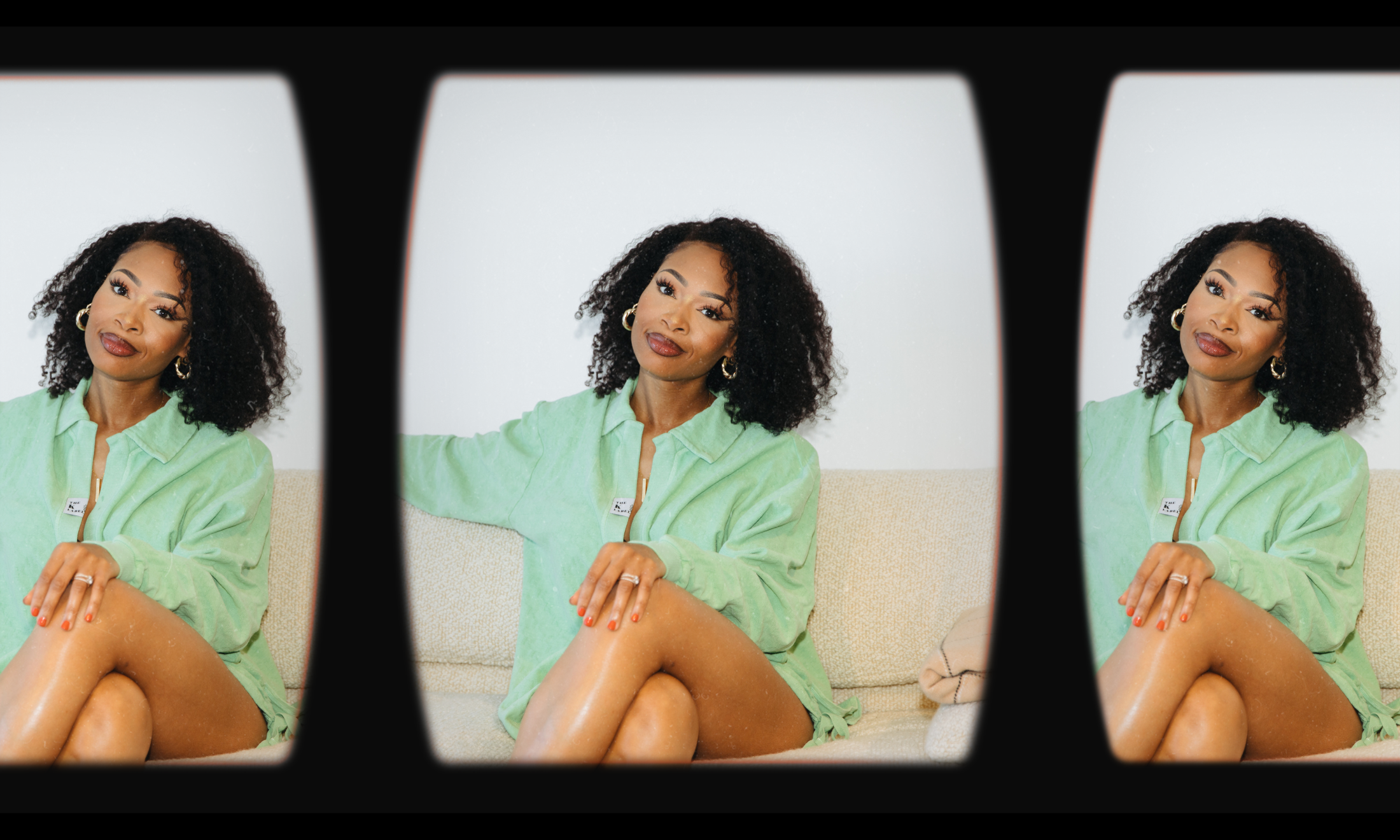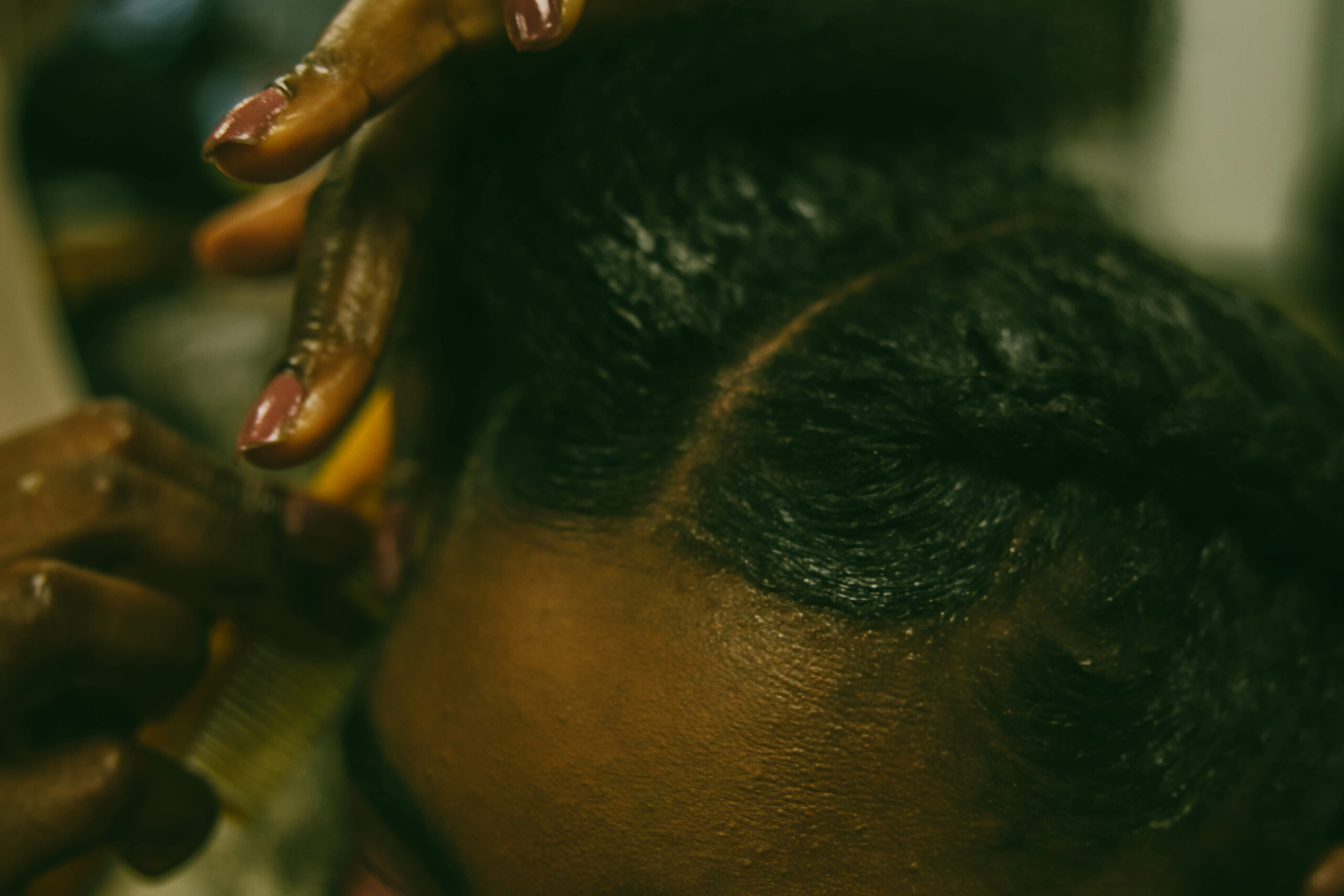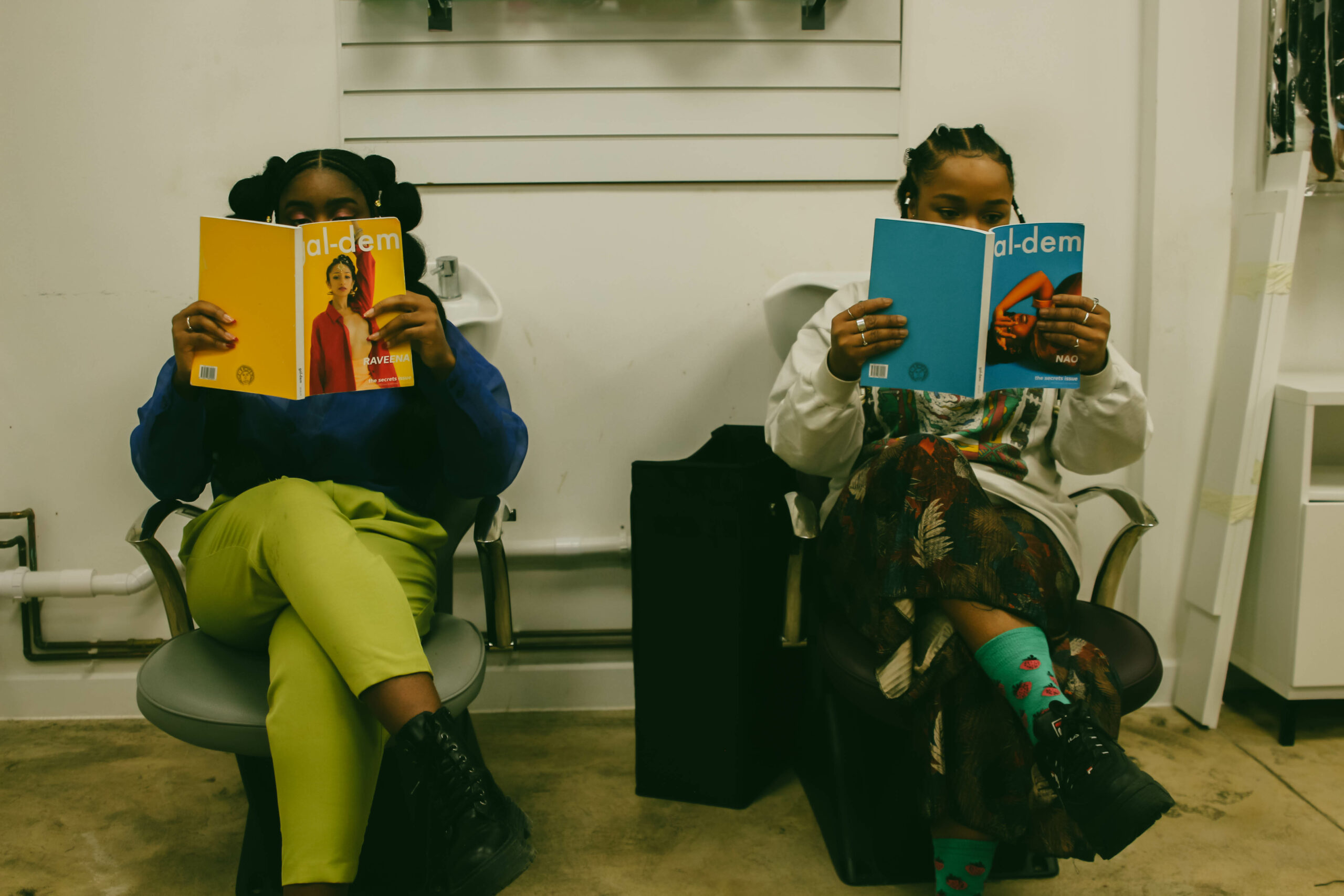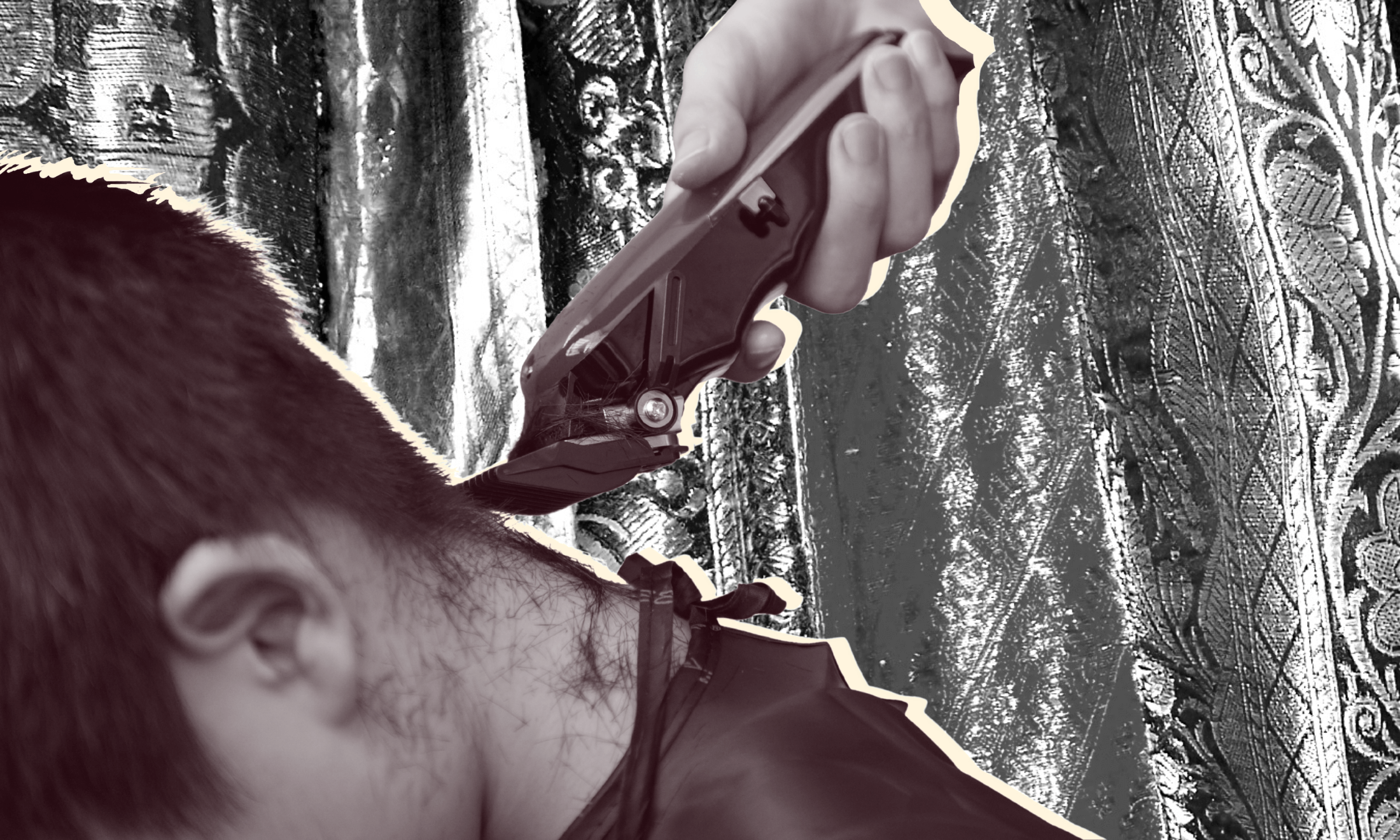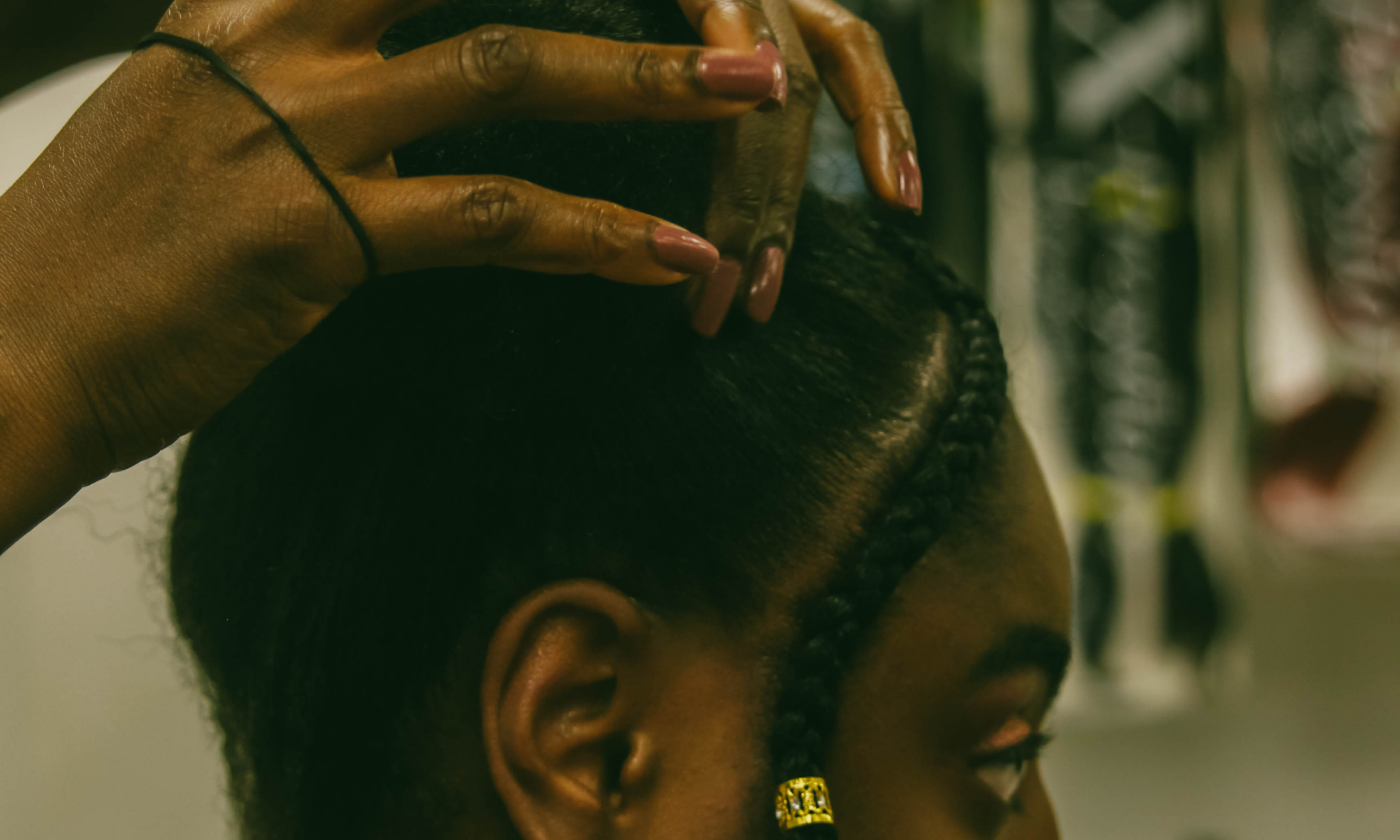
Photography via Karis Campion
I first cut my hair back in 2016. I had contemplated it for years but could never quite make the move because I had been so closely defined by my hair throughout all of my life. The huge significance that was always placed on my hair is what made it so burdensome to me.
To wear it out in its natural afro state would be read as a grand political statement, to wrestle with it and slick it back into a bun felt like conforming to European ideals. The emotional labour it took to “do” my hair on a day-to-day basis was of course compounded by the sheer time and money I spent on grooming it. And then there were the people who would often want to touch it, compliment it, question it. This is why I finally went through with the big chop. In the time that’s followed, I’ve felt empowered in my newfound androgynous femininity – which has always been central to my identity – but that I’d previously been unable to comfortably and confidently perform.
Since cutting my hair I’ve also had to learn how to navigate the barbershop. Over time, I’ve found that being a queer black mixed race woman in a black men’s barbershop can be rather tricky. The space feels hard to manage for a few different reasons.
“When I enter that space, a shift happens. I change the vibe, the atmosphere and the chat”
The barbershop feels like “their” space – that is, the man-dem’s space. Not just a space for them to get a trim but a space to meet friends, talk about their family, their girls, their latest escapades, the club event they’re going to that weekend. So, when I enter that space, a shift happens. I change the vibe, the atmosphere, the chat – this might be a momentary shift, or sometimes a long-lasting one that remoulds the space for the duration of my visit. Either way, I feel it, they feel it.
Now I’m a regular at my barbers, my entrance tends to make fewer heads turn. These days, the barber is relatively unphased by my presence and gets to starting my fade – “The usual?” “Yeah, thanks”. But this wasn’t always the case. One day, after popping in and later texting the business’ official phone number to ask about opening times, the very same barber tried to “continue” the conversation with a “what’s up” text later that night. This isn’t too far from issues raised by black women in Oisiaka’s documentary In the Cut, where women discuss encounters like being given unwanted massages in the barbershop.
The other issue that makes the space feel tricky is that I’m queer, but perhaps people don’t always guess this straight up when they meet me. It clearly wasn’t obvious to Mr. “What’s Up”, nor to another barber I had cut my hair in the same shop, who told me “you look a bit like my babymother you know”. Again, another half-hearted pass, but a pass nonetheless. The most distressing thing is that in these cases I’ve often found it hard to loudly and proudly say that I’m taken, and have a wife, not a husband. So instead I’ve reached for non-gendered terms like “partner”, usually keeping conversations about my family life to a minimum. But this never feels nice – a partial erasure of my identity.
“The barbershop is a truly sensual place and one of the few places where many black men are intimately close with each other”
More recently, I’ve felt the confidence to “out” myself in my barbershop. Despite all the very real issues that can manifest for queer people of colour of any gender when coming out, I’ve begun to see my barbershop as a space in which queerness has a rightful place to exist, and exist comfortably. The barbershop is a truly sensual place and one of the few places where many black men are intimately close with each other. It’s a site of grooming (where, if you go the full whack, you can get a wet warm towel applied and a mini head massage) and it also requires great trust to let a man take a razor to your upper lip.
All in all, I think the black barbershop could and should be reconceptualised as a place of closeness, a site of exchange. And it goes without saying that it is a key site of connectivity in the black community. So why should any of us feel like an intruder in that space?

